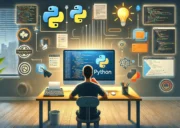
Google “in-demand skills”, and you’ll see a plethora of lists of desirable knowledge and behaviours. These are typically a split between hard and soft skills. The underlying concept that separates the two is that hard skills involve intelligence and soft skills include emotions. But if you dig a bit deeper, you find this is not actually the case. Further, calling skills soft reduces their importance and power in furthering your career – I prefer the term essential skills.
What are the most in-demand hard and soft skills?
Every year, LinkedIn creates a list of the top hard and soft skills. This year:
Top 3 hard skills:
- Blockchain
- Cloud and distributed computing
- Analytical reasoning
Top 3 soft skills:
- Creativity
- Persuasion
- Collaboration
Developing is hard and needs essential skills
When you consider these so-called soft skills it becomes clear that they aren’t so gentle after all, and are actually an essential part of succeeding and improving in a job, creating meaningful career goals, and building rewarding and beneficial relationships.
Developer roles are, in fact, all about creativity from brainstorming out of the box ideas to developing unique solutions to critical challenges. When you think of blockchain technology, could you think of a technology over the last decade that hasn’t involved more hype and persuasion? If you’ve ever been stuck in line at a tech conference with someone from a blockchain company trying to shill their coin or convince you to support their ICO otherwise, then you’ll know what I mean. And collaboration? There are few developer roles that don’t involve working with others both within your own team and that of others. You need only look at DevOps to know there’s a whole movement in tech dedicated to working with others towards shared goals as opposed to working alone in a silo.
Essentials skills are the glue that makes the so-called hard skills effective. It’s easy for people to see hard skills are far more superior. However, soft skills refer to an ability to understand yourself and your emotions and those of others. A brilliant developer may have stellar coding skills. But if they are hard to get along with, unable to follow instructions, or contribute ideas to team brainstorming they’ll find their role may stagnant, and they’ll struggle to progress outside of their existing role when applying for new jobs.
Soft skills can be learnt
Perhaps one of the reasons so-called soft skills are considered less important than hard skills is that there’s an idea that they involve a series of innate personality characteristics rather than being skills themselves.
Rather, soft skills can be taught, but they involve time, effort, and continual reflection and reinforcement. Think how your communication style and choice of words may need to change if you are working with a junior dev vs a CEO. Having the ability to understand other people and be understood yourself is a critical part of communication, and it’s not only about the knowledge you possess but how well you can explain it.
You might not realise it, but your emotional intelligence can be measured
If you’ve ever attended a job interview, you might have been asked a series of open-ended questions like:
- Can you tell me about a time when you had to work with someone you weren’t compatible with?
- If you were assigned multiple tasks at the same time, how would you organise yourself to produce quality work under tight deadlines?
- Can you tell me about a time when you overcame a significant challenge?
- You know your manager is 100% wrong about something. What do you do?
- . Give me an example of a business being creative to be successful.
These questions usually are a combination of hypothetical scenarios and reflections on past behaviours, strengthens, and challenges. They can’t be answered in one-word answers, but there’s a challenge to answer them in a way that is not too wordy and presents you in a positive light. They require an ability to reflect and verbalise those reflections. They are part of the broader category of emotional intelligence which centres around the ability to perceive and understand the emotions of yourself and others and to modulate your own natural emotions.
Soft skills and cultural fit

Most people need a certain level of expertise in communication, critical thinking, and adaptability. A job you like is one where you find your work rewarding, and like the people you work with. Working well in teams (even remote teams) means being able to communicate well verbally and in writing, sharing ideas, helping others, contributing to resources.
One of the less apparent ways soft skills are essential is when you consider whether you would want to work for an organisation. Think about a company advertising a job. You’ll read through the job description, take a look at their website, maybe see if they’re on Glassdoor. They might have a values statement like Atlassian’s “Don’t #@!% the customer” or Buffer’s “Focus on self-improvement”. Or it might be less obvious what they’re like to work for and what they stand for, so you talk to people who’ve worked for the company previously. You might have a skill set that could work well across a variety of different roles in different companies. But what makes it easier to determine who you’ll be the happiest spending your days with is the culture of a company and if it aligns with yours. The cultural fit might play out in a variety of ways (good and bad) from a workplace where everyone is friends on Facebook, a company that funds training for its team, or makes overtime compulsory. Here your soft skills are really an asset as they give you an ability to dig beneath the platitudes to determine what a company really stands for.




